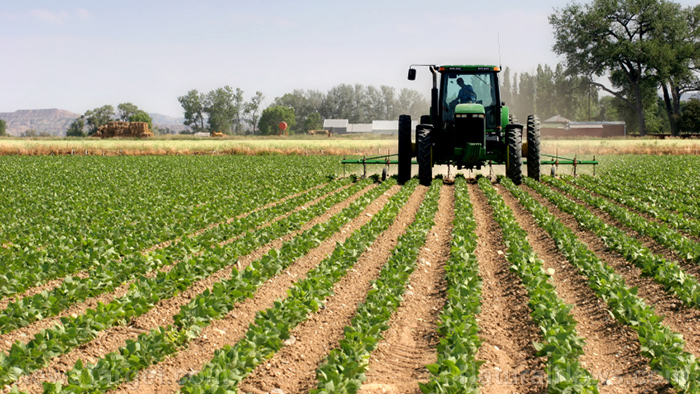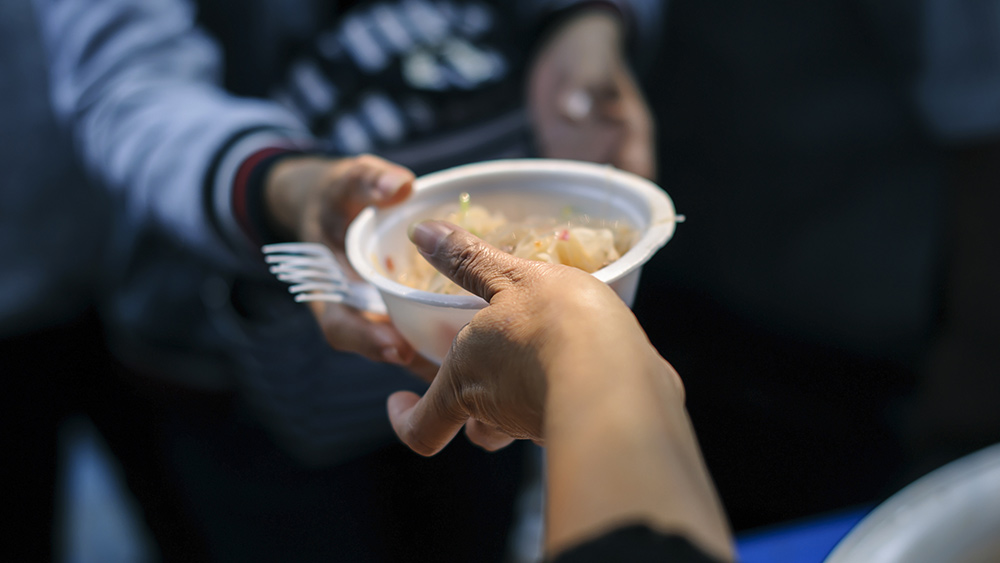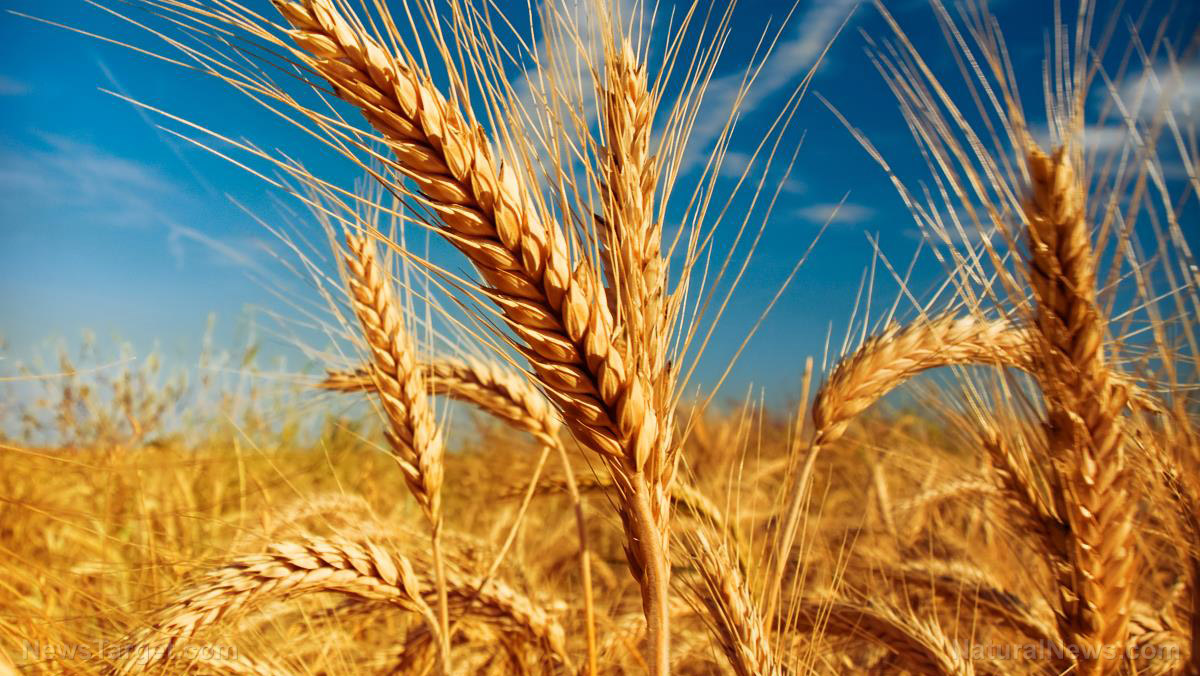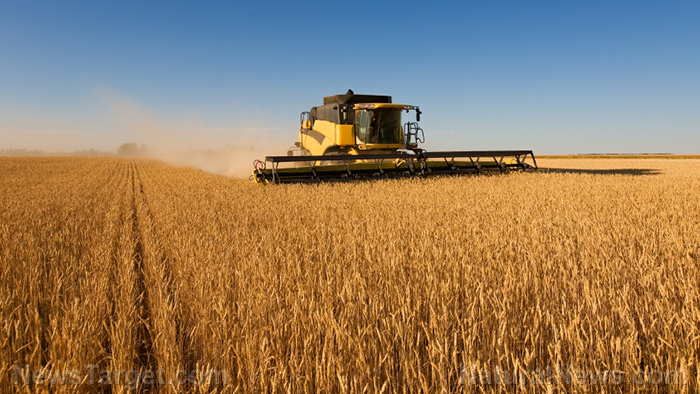Spring wheat hits its highest price in 14 years, spurring higher food prices
05/11/2022 / By Ramon Tomey

Spring wheat, which is used as a main ingredient for various food items, hit its highest price in 14 years due to a combination of factors inside and outside the United States.
ZeroHedge reported that spring wheat – which is used to make bagels, pizza crusts, rolls and croissants – approached the $12 mark on the morning of May 9. The price per bushel of spring wheat reached $12.31 on that day, the highest since 2008. This was mainly driven by delayed planting in the northern U.S. plains and Canada due to abnormally wet conditions.
According to another report by the conservative news website, extreme weather conditions prevented farmers in wheat-producing regions from planting. Devastating floods, blizzards, winter storms and high winds hit North and South Dakota, stalling wheat plantings schedule for April. The resulting wet conditions prevented farmers from working their fields, further decreasing wheat yields.
“The spring wheat crop should continue to see planting delays, with heavy rains and cold weather in the forecast,” said commodity research firm The Hightower Report.
While too much water has impacted wheat crops in the U.S., lack of water has also impacted crops across the pond. Western Europe is currently being ravaged by a drought that has been going on for three weeks. According to weather forecaster Meteo France, the country ought to expect “summer-like heat.”
French commodities Agritel pointed out that the drought could further worsen crop ratings, despite wheat harvests in France being in great shape. “The growing water deficit in France is causing concern amidst an already tense market,” it stated in a commodity note. “The situation is clearly stretched in terms of availability [of wheat] on the international scene.”
Russia-Ukraine war also pushing wheat prices higher
The ongoing Russia-Ukraine war has also contributed to higher wheat prices. According to ZeroHedge, Kyiv alone accounts for 10 percent of global wheat exports. But an impediment to grain exports, including wheat, has prevented about 25 million tons from entering the world market, Reuters reported.
The news outlet quoted an official from the United Nations’ Food and Agriculture Organization (FAO) – who cited infrastructure challenges and blocked sea ports, such as the city of Mariupol, for Ukraine’s inability to export grains. (Related: Millions of tons of harvested grain are currently stuck in Ukraine due to war as global hunger crisis deepens.)
FAO Markets and Trade Division Deputy Director Josef Schmidhuber said during a May 6 virtual press briefing: “It’s almost a grotesque situation we see at the moment in Ukraine with nearly 25 million tons of grain that could be exported, but that cannot leave the country simply because of lack of infrastructure [and] the blockade of the ports.”
He added that the full grain silos in Ukraine could result in storage shortages during the next grain harvest in July and August.
“Despite the war, the harvest conditions don’t look that dire. That could really mean there’s not enough storage capacity in Ukraine, particularly if there’s no wheat corridor opening up for export.”
Schmidhuber’s remarks appeared to align with statements by World Trade Organization (WTO) Director-General Ngozi Okonjo-Iweala regarding spiraling food prices, to which she expressed serious worry.
“It would really help the world if we could evacuate this grain [from Ukraine]. There’s a serious risk of food prices going up and spiraling out of affordability that could lead to more hunger,” Okonjo-Iweala said.
Crops.news has more stories about wheat prices and the factors affecting them.
Watch H.A. Graves explaining how shortages of wheat and fertilizer across the globe trigger the rise of food prices.
This video is from the Hal Graves channel on Brighteon.com.
More related stories:
Floods delay plantings in Northern Plains, could trigger food shortage.
Global food prices surge to record highs; FAO warns of possible famine all over the world.
Sources include:
Submit a correction >>
Tagged Under:
agriculture, chaos, collapse, crops, extreme weather, food collapse, food inflation, food prices, food supply, grain exports, grocery, harvest, panic, products, Russia-Ukraine war, spring wheat, supply chain, wheat prices, wheat supply, World War III
This article may contain statements that reflect the opinion of the author
RECENT NEWS & ARTICLES
FoodRiots.news is a fact-based public education website published by FoodRiots.news Features, LLC.
All content copyright © 2021 by FoodRiots.news Features, LLC.
Contact Us with Tips or Corrections
All trademarks, registered trademarks and servicemarks mentioned on this site are the property of their respective owners.





















